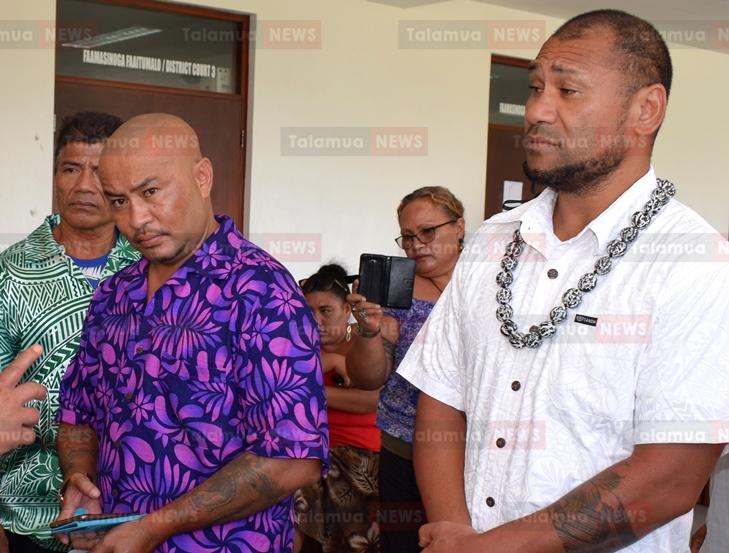Court
Why Australian court rejected Samoan extradition application

By Lagi Keresoma
APIA, SAMOA – 24 SEPTEMBER 2022: The lack of supporting documents and unauthenticated documents led to the dismissal of an application by Samoa’s (former) Attorney General to extradite Australian based Talelei Pauga to stand trial in Samoa.
Pauga is jointly charged with Malele Paulo and Lema’i Sione for conspiracy to assassinate former Prime Minister Tuilaepa Sailele Malielegaoi in 2019.
On 12 September 2022, Federal Court of Australia Judge Colvin J. dismissed the application and his written decision is linked below.
Eligibility for extradition
When the extradition application was received, the Queensland Magistrate noted that Pauga was to be surrendered to the Independent State of Samoa.
Judge Colvin noted that the Queensland Magistrate acting administratively under the Extradition Act 1988 (Cth), determined that Mr Talalelei Pauga was eligible for surrender to the Independent State of Samoa and ordered that he be committed to prison to await surrender.
He also noted that section 21 of the Extradition Act provides that in such a circumstance, a person the subject of the order may apply to this Court for a review of the order, and on review, the Court may by judicial order confirm or quash the order of the Magistrate.
Judge Colvin highlighted section 19(2) of the Act that specifies that a person is only eligible for surrender if the matters listed in that provisions pertains to:
- the supporting documents in relation to the offence have been produced to the magistrate,
- the term ‘supporting documents’ is defined in s 19(3) as various documents as being ‘duly authenticated’,
- that any document that is ‘duly authenticated’ is admissible in the proceedings before the magistrate.
Judge Colvin also highlighted the steps that needed to be followed regarding documents sought by or on behalf of an extradition country to be admitted in the proceeding is duly authenticated and signed or certified by a Judge, magistrate or an officer of the extradition country.
The documents have to be authenticated by an oath of a witness and sealed with a public seal.
The bundle of documents tendered by Samoa were certified and declared by the Ministry of Justice & Courts Administration Chief Executive Officer (CEO) Moliei Simi Vaai.
The disputed issues that cost the application
After perusing all evidence tendered, Judge Colvin pointed out seven contentious issues which his decision was based on.
He said the description in the Declaration is not a description of the Bundle and for that reason, it must be some bundle other than the Bundle that is the subject of the Declaration.
He also noted that the documents in the Bundle have not been duly authenticated and the description of the documents comprising the Bundle that is set out in the Certificate is insufficient
“The description in the Certificate of annexures B, C, D and E did not identify them as copies. In order for a copy of a document to be duly authenticated it needed to be described as a copy,” he said.
“There was no statement as to documents that were a copy, that the copy was true and correct. In order for a copy of a document to be duly authenticated it needed to be certified as being a true and correct copy,” he said.
He also noted that the Red Seal included the words of the motto for the State of Samoa beneath the escutcheon shape of the coat of arms. As those words had not been translated, there had been no authentication of the documents.
He said as Samoa had not relied expressly upon the Red Seal before the magistrate, Samoa could not now do so.
For these reasons, Judge Colvin rejected the application.
Click this link to go to Full Decision Pauga v Samoa [2022] FCA 1097















